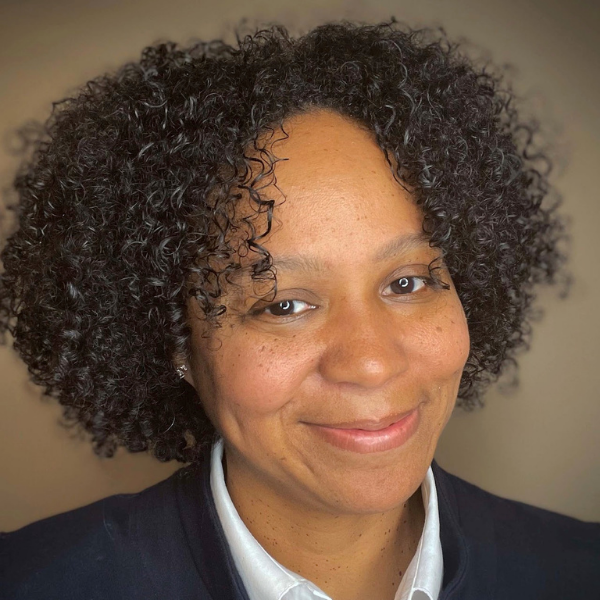Living with Diabetes: A Journey of Strength and Dignity
Dignity in healthcare leads to better morale, more significant commitment, increased trust and cohesion, and increased range and quality of life.
November 12, 2024
For 20 years, I have shared my experiences with diabetes as a civilian, a military veteran and the wife of an active military member. A lot has changed during these decades, including new, innovative medicines; exciting technologies for tracking blood glucose; and more visibility about the costs of diabetes.
But much hasn’t changed.
First, some background: In June 2004, I was diagnosed with LADA (Latent Autoimmune Diabetes in Adults). I didn’t need insulin at diagnosis, but eventually, I became insulin dependent. About 10 years ago, my husband Scott learned he had type 2 diabetes (T2D) while on active duty. I spent five-and-a-half years in the U.S. Army Reserve, and Scott served 24 years in the Army. Recently, my “bonus” daughter learned she had gestational diabetes, though she, too, was eventually diagnosed with LADA.
It’s fair to say I have really lived with diabetes. I’m not alone: Diabetes is an epidemic in the U.S., affecting more than 38 million Americans,1 and one in four veterans are diagnosed with this chronic disease – more than double the rate of other Americans.2

While awareness about diabetes has grown, the pervasive stigma and a lack of knowledge about, and appreciation for, the full-time job of diabetes among family, friends, employers, colleagues and, sometimes, healthcare professionals can make it an especially hard condition to manage physically and emotionally. Sometimes people with diabetes, like Scott when he was first diagnosed, do not get enough instruction about self-management or diabetes education. We are criticized about our body shape, assumed to be “couch potatoes” or looked at with disapproval if we have that piece of birthday cake instead of being recognized as a person doing a fantastic job managing a condition that is 24/7, 365. And in the military, if someone is insulin dependent, it is possible to be discharged under the assumption that we will not be able to fulfill our duties.
The day-to-day challenges of diabetes and the reactions people with diabetes experience every day add to the load we carry. Getting the dignity we deserve would go a long way.
I’m an optimist; I believe it is possible to create an environment where people with diabetes receive support, respect, and kindness. This World Diabetes Day, there’s no better time to consider steps we can all take:
HCPs:
After medical tests are complete, there’s an opportunity to connect with patients by seeing them as they are — the people they are, with families and responsibilities—and asking questions that could elicit concerns and wins. If the patient is a veteran or on active duty, it’s important to remember their experiences on duty and listen for issues that may need attention.
Employers, friends, and family:
Remember the skills, capabilities and contributions your employees with diabetes bring to work every day, rather than any absences due to blood sugar fluctuation. You can trust people with diabetes to know how to manage diabetes — they know their bodies. Be an active listener. It’s a powerful skill. Sometimes the best thing you can do for someone with diabetes is listen and let them know you’re there.
If you’re someone with diabetes:
It can feel like there’s no “space” when people ask intrusive questions or you’re not feeling heard. Know there is a community of people online and in person who are there to support you. Speak up. If you are struggling with diabetes, let your diabetes care team or physician know. Everybody needs to advocate for themselves, and being someone with diabetes is no different. It’s OK to say you’re not OK.
We talk a lot about dignity in the military. This feeling of giving and accepting self-respect also plays a well-documented role in healthcare.3 Whether you or someone you know is living with diabetes, dignity is a goal we should all strive for — it leads to better morale, more significant commitment, increased trust and cohesion, and increased range and quality of life. Let’s get started now.
Sources
- American Diabetes Association, "Statistics About Diabetes"
- VA News, "Managing Type 2 Diabetes"
- National Library of Medicince, "Dignity Promotion in People with Advanced Chronic Diseases: Contributions for a Value-Based Healthcare Practice"
Contributor
Cherise Shockley is the founder of the first and longest diabetes Twitter chat (Diabetes Social Media Advocacy) and creator of WOCDiabetes. She is a subject matter expert in diabetes, social media, online communities, and peer support. During the day, she works at Roche Dia US corporate communications within the Brand and Digital team.

